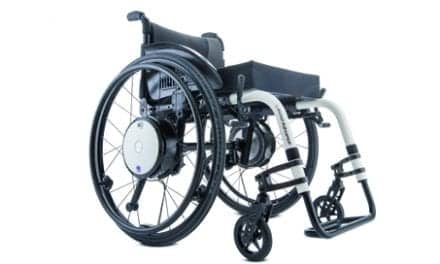Over half of the 13 hospitals participating in a study examining the SEM Scanner, manufactured by Bruin Biometrics LLC, were able to eliminate the occurrence of new pressure ulcers completely, the Los Angeles-based company reports.
In addition, three participating hospitals achieved pressure ulcer reduction ranging from 11% to 90%.
The Pressure Ulcer Prevention Program (PURP) included more than 1,200 patients from 13 hospitals (including 10 NHS England Trusts), and incorporated the SEM Scanner into existing care pathways for pressure ulcer reduction.
According to the release, results from this study support the suggestion that the SEM Scanner can help enable nurses to prevent pressure ulcers before they break through the skin, a conclusion that upends the prevailing view that bedsores cannot be diagnosed and treated until they have caused visible and irreversible damage to the skin’s surface.
“These data challenge existing practice that looks for visual changes to skin to initiate bedsore intervention,” BBI CEO Martin Burns says in the release. “Scientific findings show that by the time damage is visible, it is far too late. Early detection changed the prognosis for millions of cancer survivors. A proactive approach to ‘Act Before Red’ is consistently doing the same for bedsores, on a large scale, across independent sites.”
“We reduced pressure ulcers in the ward concerned to zero during our Scanner trial – an achievement that, if we rolled out across our hospital, we estimate could save our hospital nearly £600,000 and release 1,420 hours of nurse productivity annually,” explains Glenn Smith, a tissue viability and nutrition senior clinical nurse specialist/patient safety lead at St. Mary’s Hospital.
“In our pilot program, which included over 200 patients, we reduced bedsore incidence by 90%,” states Rose Raizman, nurse practitioner, enterostomal therapist and pressure ulcer prevention at Scarborough and Rouge Hospital in Ontario, Canada.
“The vast majority of nurses participating in our Scanner program said the device provided valuable clinical information,” adds Parker Moss, chief technology and transformation officer at Virgin Care, which experienced a 95% drop in the bedsore rate during an evaluation of the device at Farnham Community Hospital in Surrey, where it provides services to the NHS, per the release.
[Source(s): Bruin Biometrics LLC, PR Newswire]




